
Question and Answers Forum
Question Number 85568 by jagoll last updated on 23/Mar/20
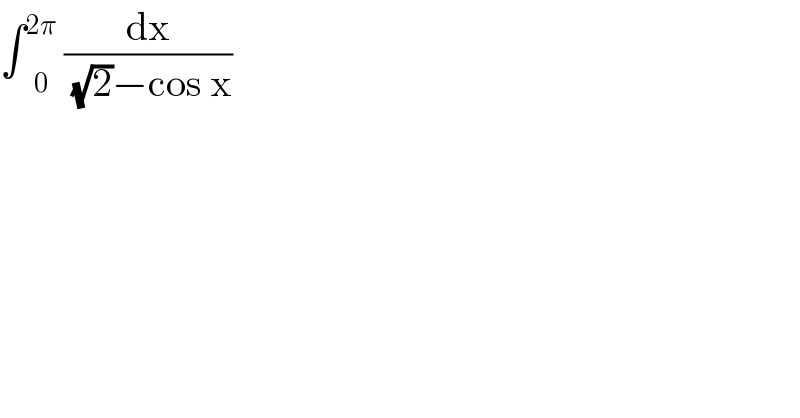
Commented by jagoll last updated on 23/Mar/20
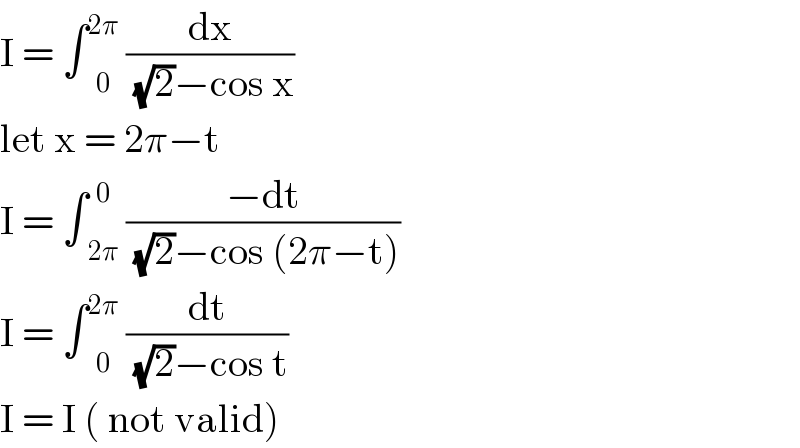
Commented by mathmax by abdo last updated on 23/Mar/20
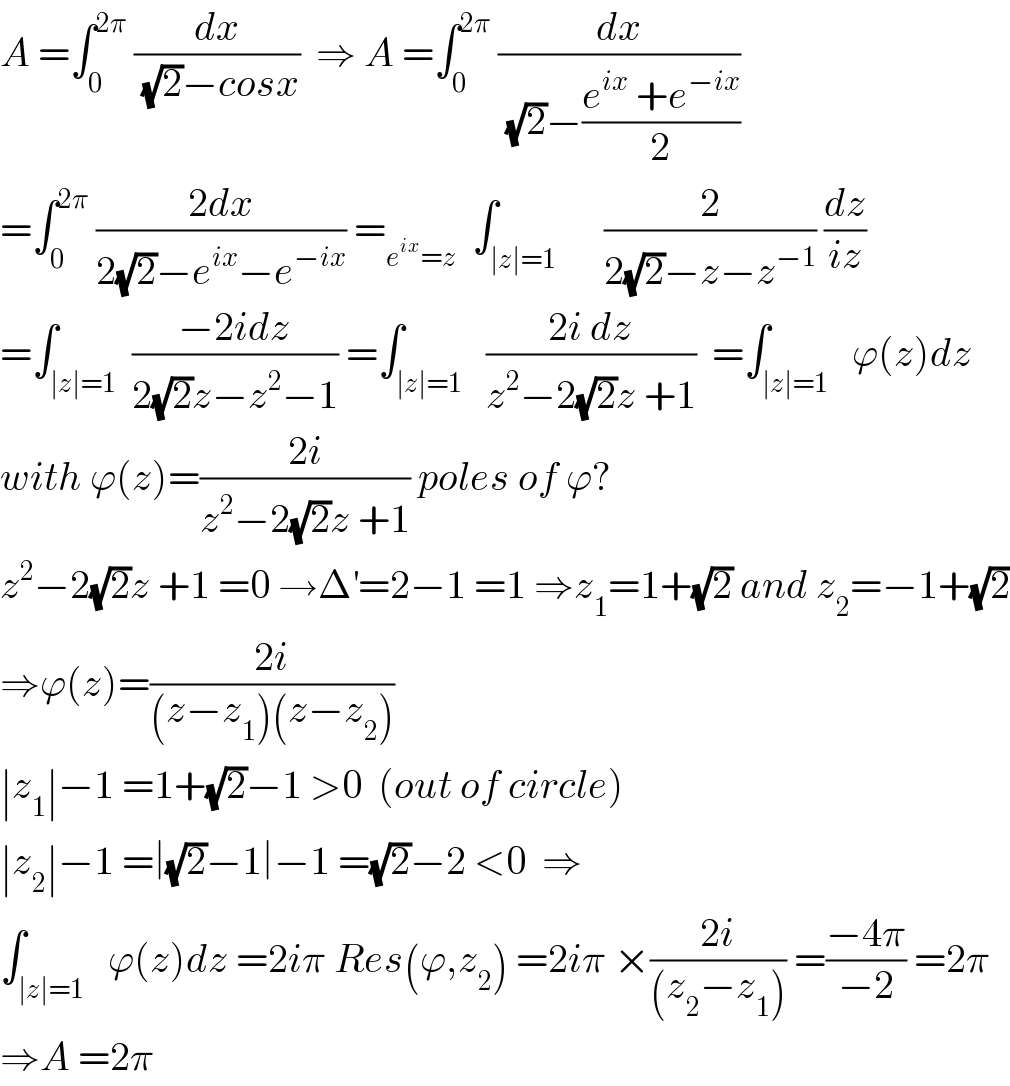
Answered by mind is power last updated on 23/Mar/20
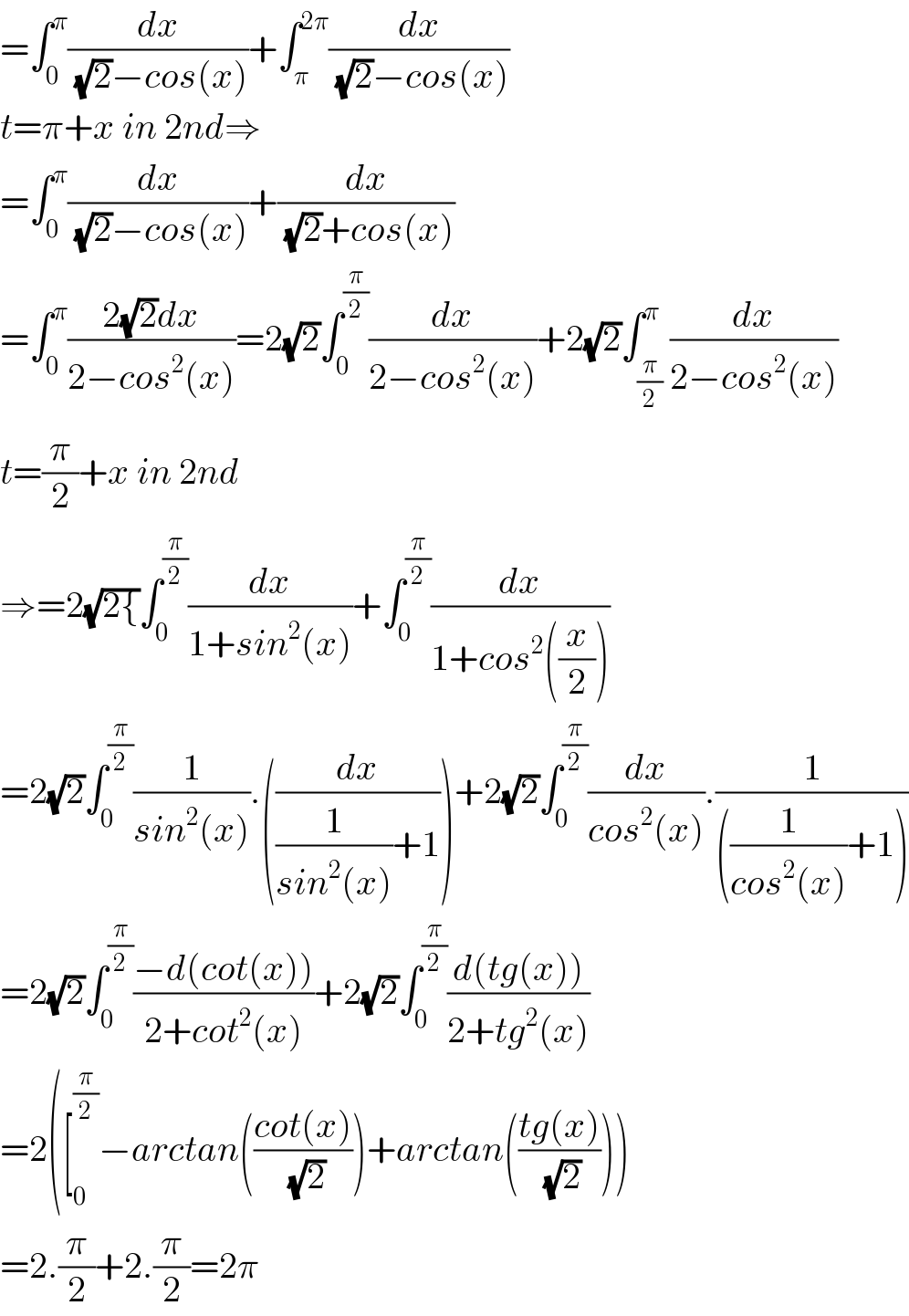
Commented by jagoll last updated on 23/Mar/20

Commented by mind is power last updated on 23/Mar/20

Answered by mind is power last updated on 23/Mar/20
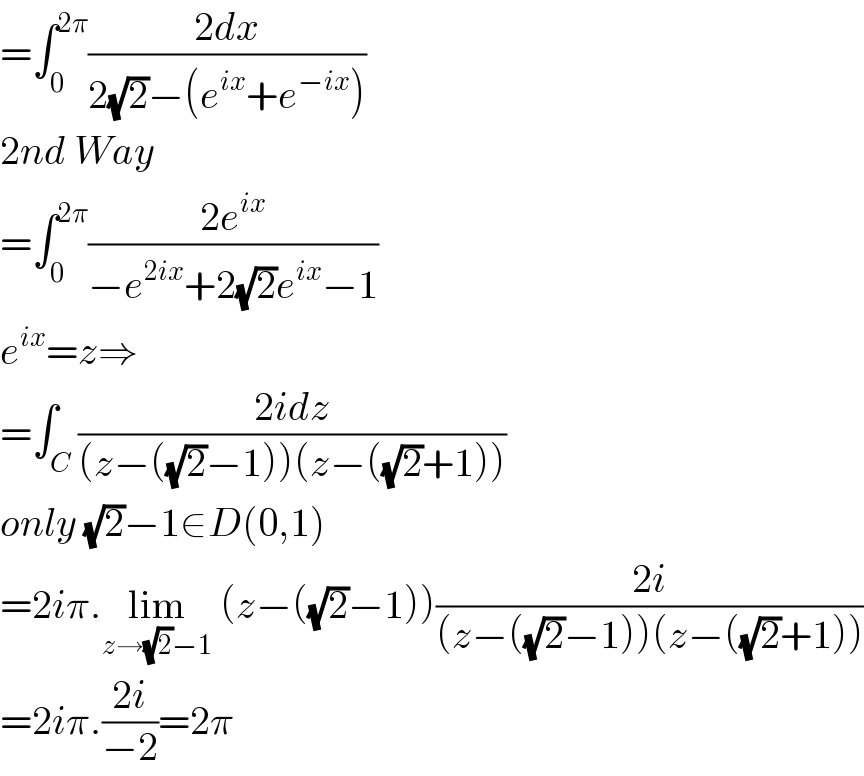
Answered by mind is power last updated on 23/Mar/20
![you can always dolve ∫((p(sin(t),cos(t)))/(Q(sin(t),cos(t))))dt withe P snd Q∈R[x][y] by tg((t/2))=x](Q85575.png)
Commented by jagoll last updated on 23/Mar/20

Answered by MJS last updated on 23/Mar/20
![∫(dx/((√2)−cos x))= [t=tan (x/2) →dx=(2/(t^2 +1))dt] =−2(1−(√2))∫(dt/(t^2 +3−2(√2)))= =2arctan ((1+(√2))t) = =2arctan ((1+(√2))tan (x/2)) +C](Q85619.png)
Commented by jagoll last updated on 23/Mar/20
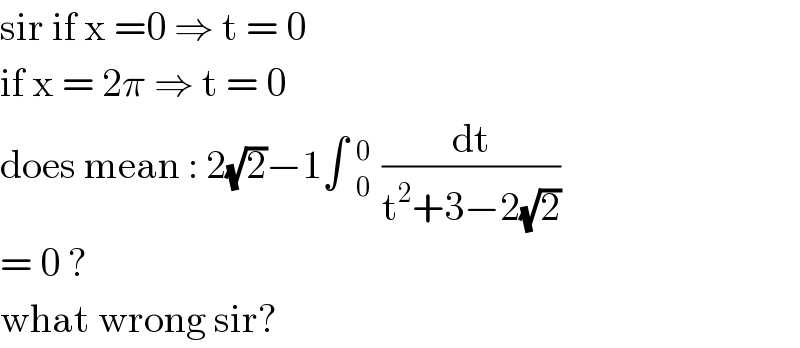
Commented by MJS last updated on 23/Mar/20

Commented by MJS last updated on 23/Mar/20

Commented by jagoll last updated on 23/Mar/20
![2×2 [arc tan ((1+(√2))tan(x/2) )]_0 ^( (π/2)) 4 × [ arc tan ((1+(√2)) tan (π/4))] 4× [ arc tan ((1+(√2) ))] ?](Q85632.png)
Commented by jagoll last updated on 23/Mar/20

Commented by jagoll last updated on 23/Mar/20
![or 4×[arc tan ((1+(√2))t]_( 0) ^∞ 4 ×[ arc tan (∞) − arc tan (0) ] 4×(π/2) = 2π](Q85634.png)
Commented by MJS last updated on 23/Mar/20
![∫_0 ^(2π) (dx/((√2)−cos x))=2∫_0 ^π (dx/((√2)−cos x))= =2[2arctan ((1+(√2))tan (x/2))]_0 ^π = =4lim_(x→π^− ) (arctan ((1+(√2))tan (x/2))) =4×(π/2)=2π](Q85635.png)
Commented by jagoll last updated on 23/Mar/20

